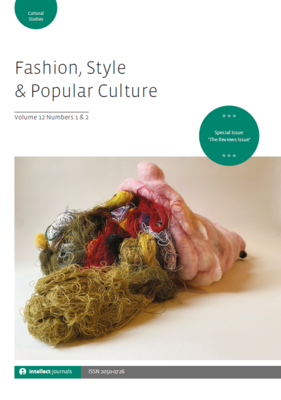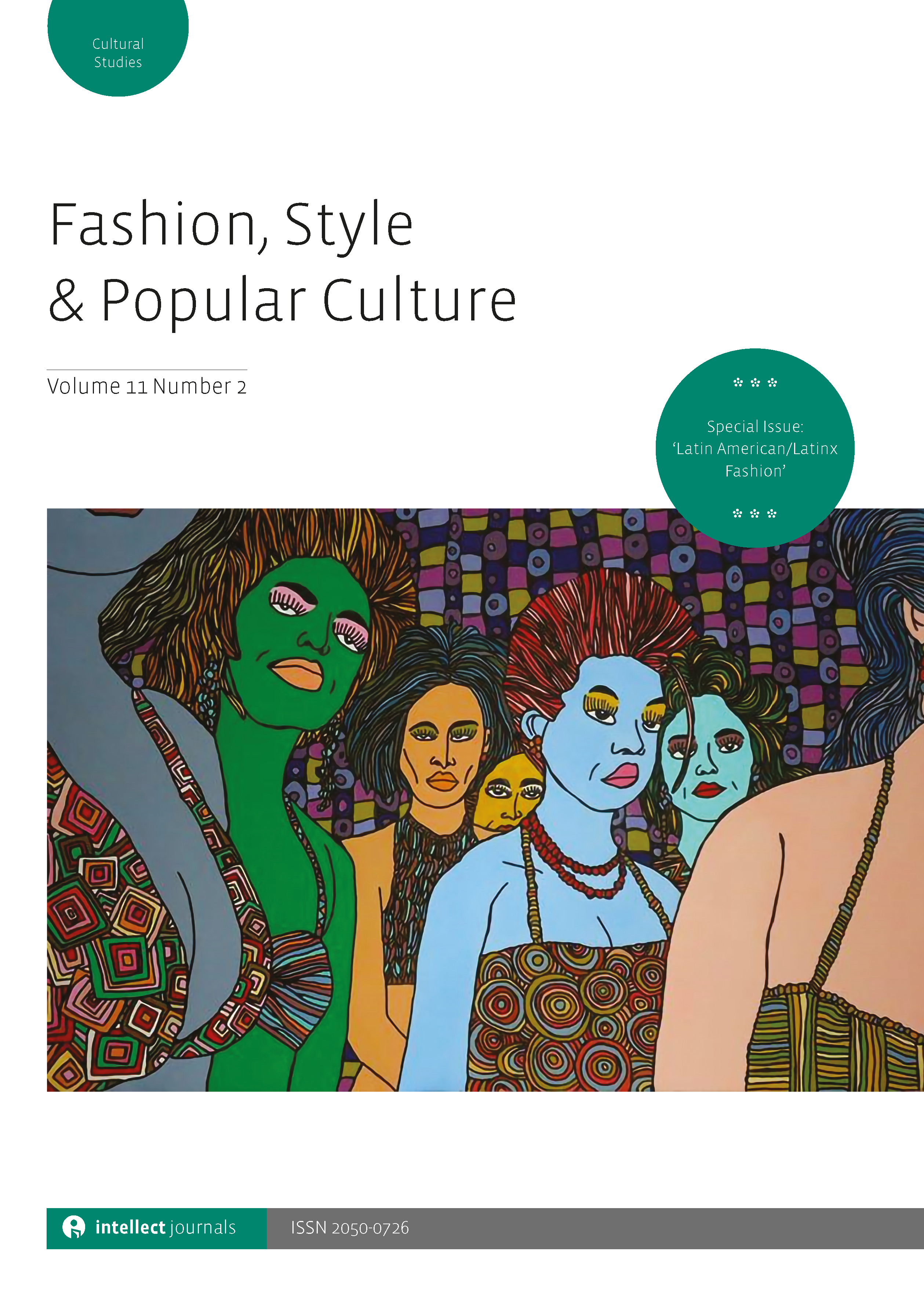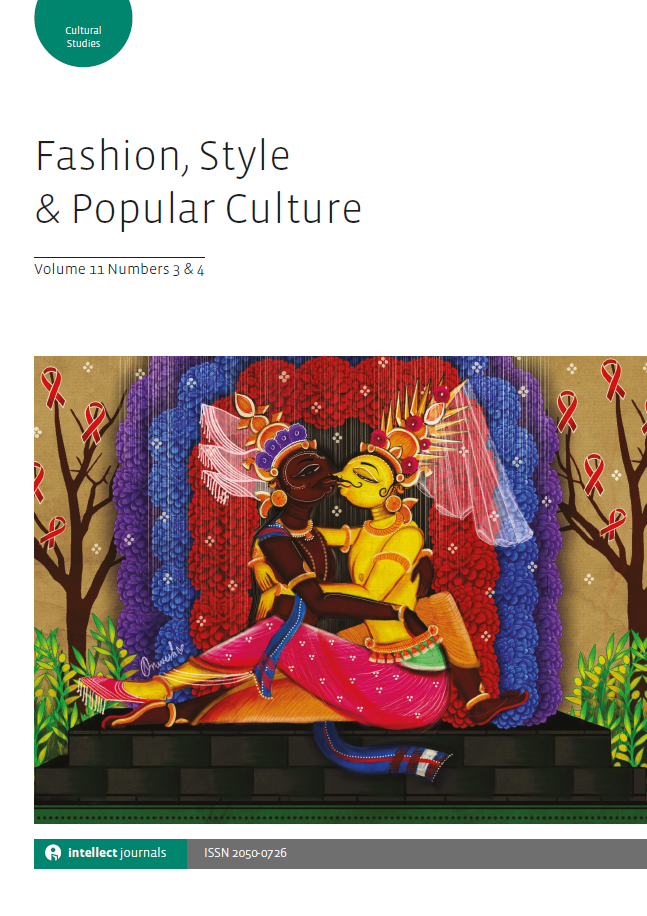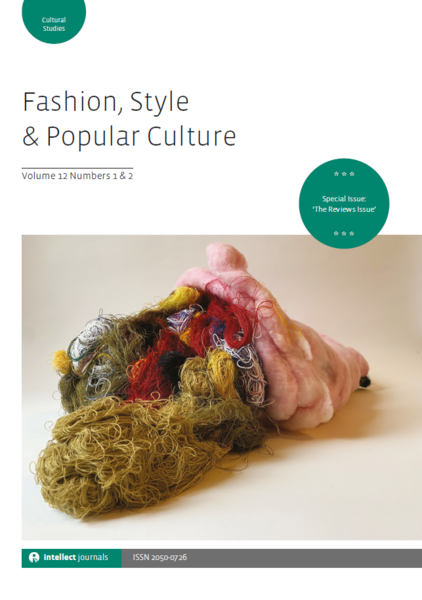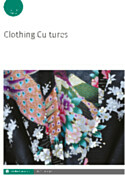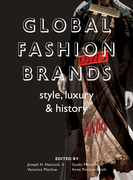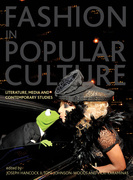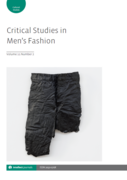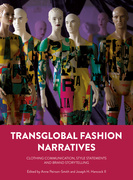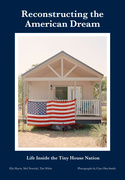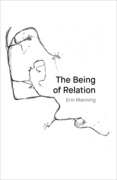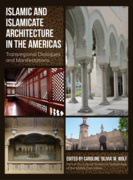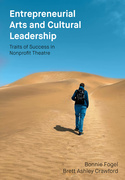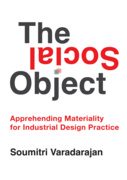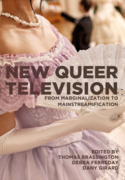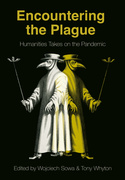General Call for Papers
All original manuscript submissions must include full metadata – abstract, keywords, contributor biography and contact details – and follow Intellect's house style. Please read the journal's Notes for Contributors before submitting.
All articles submitted should be original work and must not be under consideration by other publications.
Fashion, Style & Popular Culture is concerned with style, fashion, clothing, design, and related trends, as well as appearances and consumption as they relate to popular culture. Scholarship using and/or including: historical, manufacturing, aesthetics, marketing, branding, merchandising, retailing, psychological/ sociological aspects of dress, body image, and cultural identities, in addition to any areas topics such as purchasing, shopping, and the ways in which consumers construct identities are welcome.
Papers from all research methods and disciplines are welcome! Innovative and new popular culture research, scholarship and creative works in the areas of fashion, design, style, the body and consumerism are encouraged!
Please email manuscripts of 5000–8000 words to our editor Joseph H. Hancock, Ph.D. at joseph.h.hancock@drexel.edu. Only manuscripts in Word doc format will be accepted – please do not send PDFs.
Call for Reviews
Fashion, Style & Popular Culture seeks scholastic reviews on the latest books, movies, media, museum exhibitions, musical groups and performers, retailing stores, global fashion events, merchandising techniques and styles as they relate to our journal. If you have something you would like us to review or a review that you would like to write, please send your inquiry to Jessica Strubel at Jessica.Strubel@unt.edu.
All images need to be included with ALL SUBMISSIONS. Authors are responsible for copyright permissions.
Journal contributors will receive a free PDF copy of their final work upon publication.
Special Issue Call for Papers
‘Artificial Intelligence: Design, Production, Media and Consumers’
Guest Editors: Catharine Weiss, Lasell University, USA and Mary Ruppert, Washington University, St. Louis, USA
With the success of two previous issues of Fashion, Style & Popular Culture (FSPC) on Fashion Innovation and Merchandising Technologies we now introduce a third on artificial intelligence. This volume will address artificial intelligence (AI), exploring how AI influences fashion creativity and design, how curated and digital consumption now takes place, and how the interconnected relationship between technology, brand delivery, and data collection manifests within fashion and retail. The edition will emphasize how contemporary technology will modify the creative element for fashion designers and content developers, and lead to new ways of delivering refined consumer information. The publication will be a compilation of scholarly research designed around a central theme under three distinct categories, producing holistic and relevant content. Whether it’s in the way we create and develop products and digital content and experiences through AI, how trends are captured through algorithms or ways digital fashion is delivered to and engaged by consumers through their devices, this volume will continue to reflect the zeitgeist of fashion and how it now runs parallel with technology. Topics can include, but are not limited to:
AI and Design/Production
- AI for accelerated design processes
- Smarter production capabilities based on more refined forecasting and inventory analysis
- Sustainable solutions for development and production
- AI-generated product design, logos, and branding
- Ethical aspects of AI-generated content
- AI for creative inspiration and mood board
AI and The Media
- Cultural movements and consumer engagement in the technological world
- AI and the changing nature of content and copywriting
- Social media and the curated message
- Branding and digital creations
- Personalized experiences, Open AI and memory
- AI agents
- Deep fakes
- Content that sways opinion (fake content)
- Generated reviews and consumer communication
AI and The Consumer
- Trend forecasting, detection, and projections
- Cultural movements and consumer engagement
- Digital shopping experiences and customer service
- Personalized digital deliveries and curations
- Chatbot integrations into websites for better customer engagement
Deadline for manuscripts of 5000–6000 words (using Intellect House Style) will be 1 July 2025 and will be accepted on a rolling basis with feedback within 90 days. The Special Issue will be published in 2026. Please let us know if you are interested in submitting by emailing Catharine Weiss at cweiss1@lasell.edu. Questions regarding the journal should be sent to Joseph H. Hancock, II at jhh33@drexel.edu.
‘Queer Celebrities: Fashion, Style and Influence in Popular Culture’
Fashion, Style & Popular Culture invites scholars, critics and artists to submit papers for a Special Issue exploring the intersection of queerness, celebrity culture, fashion and style. How are queer celebrities influencing, shaping and transforming popular culture through their fashion and stylistic choices? We are interested in contributions that critically engage with the roles of queer celebrities in fashion as agents of change, as symbols of resistance, and as architects of a more inclusive and diverse cultural landscape.
Topics of interest include, but are not limited to:
- Iconography and Symbolism: Symbols, motifs in queer celebrities’ fashion choices.
- Fashion and Activism: Queer celebrities using fashion for activism, advocacy, social change.
- Queer Aesthetics and Design: Queer aesthetics in celebrity fashion designers and stylists.
- Media Representation: Queer celebrity portrayals in film, tv, music videos, digital media.
- Queer Influencers: Tension between self-commodification and contributing to queer culture.
- Fan Culture and Imitation: Queer celebrity fashion in imitation, cosplay, fan communities.
- Queer Celebrity Fashion Brand Collaborations: Impact on brand and consumer behaviour.
- Body Politics and Gender Fluidity: How queer celebrities challenge conventional body. norms and gender binaries through fashion, including impact on societal norms.
- Queer Celebrities and the Fashion Industry: Impact on fashion industry’s sizing, fit, gender neutrality.
- Identity: Queer celebrity fashion and identity formation, self-expression.
- Intersectionality and Global Perspectives: Global influence of queer celebrities on fashion and diverse expressions of queerness in different cultural contexts.
- Queer or Queer baiting? Exploitation of the queer market through queer fashion and style.
Each topic invites contributors to delve into the multifaceted relationship between queer celebrities and the world of fashion. We encourage submissions that offer unique, including non-western, perspectives, interdisciplinary approaches and innovative methodologies.
The deadline for manuscripts of 5000–7000 words (using Intellect House Style) is 1 July 2025.
Please visit the journal website for Notes for Contributors: https://www.intellectbooks.com/fashion-style-popular-culture#call-for-papers
Please submit full manuscripts for double blind peer-review to Dirk Reynders at dirk_reynders@hotmail.com. Questions regarding journal standards and submissions should be sent to Hilde Van den Buck at hdv26@drexel.edu. General questions regarding the journal can be sent to Joseph H. Hancock, II at joseph.hancockii@gmail.com.
‘Fashion and Culture in East Asia: Nation and Sense of Belonging’
This Special Issue will explore topics regarding East Asian nations and sense of belonging. Fashion, Style & Popular Culture has published on topics relating to fashion and style; in this issue we will address feelings of marginalization within the region intersecting with national identity, culture, religion and ethnicity. In the homogenous East Asian nations, though collectivism can often bring solidarity among many citizens, ethnic, racial and cultural minorities can often experience greater exclusion socially. Essays, exhibition reviews and book reviews are welcomed. Possible topics can include, but are not limited to:
- Critique on the Eurocentric and/or Sinocentric narratives in fashion scholarship
- Religion and dress (Confucianism, Buddhism, Shintoism, Indigenous religions, etc.)
- Fashion and dress practices in East Asian communities
- Fashion and cultural practices in Indigenous or ethnic minority communities within East Asian societies
- Ethnicity and national identity in East Asia
- East Asian diaspora and their dress and cultural practices
- Popular culture and streetwear fashion in East Asia
- Representation of traditional dresses in modern East Asia
- Curatorial and museum practices in East Asia
- Language, food and fashion
Manuscripts should be within 5000–7000 words and reviews should be within 1500–3000 words. Formatting should follow the Intellect House Style. For guidelines of formatting style, please refer to: https://www.intellectbooks.com/asset/1748/house-style-guide-6th-ed..pdf.
Manuscripts can be submitted in English, Chinese (traditional or simplified), Korean and Japanese (there is a limit of two non-English articles to for publication in this issue). For non-English manuscripts, please also include an English-translated abstract and keywords.
Deadline for manuscript submissions is 1 December 2025. All manuscripts will be reviewed on a rolling basis as they are received. Please send manuscripts to Jonathan Lee at liphei.lee@torontomu.ca or Rhiannon Howell-Matwichuk at rhowellmatwichuk@torontomu.ca. For questions regarding submissions and inquiries regarding the journal, Fashion, Style & Popular Culture, please contact Dr. Joseph H. Hancock at joseph.hancockii@gmail.com.
‘Fashion and Culture in East Asia: Sociocultural Identities’
This Special Issue will focus on issues of East Asian sociocultural identity. Fashion, Style & Popular Culture has published on topics relating to fashion and style, however, through this lens we hope to unpack issues surrounding different facets of identity such as gender, the body, sexual orientation, class and race. We are aiming to specifically address identities that are less represented in East Asian cultures at large, not merely just in fashion. The power of fashion and beauty comes from its ability to act as a lens through which we can understand complex societal issues, and this is what we hope to highlight. Essays, exhibition reviews and book reviews are welcomed. Possible topics can include, but are not limited to:
- Authoritarianism, political protest and fashion
- Beauty, popular culture and East Asian identities
- Postcolonialism within an East Asian context
- Historical understandings of fashion and dress in Japanese-colonized Korea and Taiwan
- Fashion subcultures in East Asia
- The relationship between fashion and class in an East Asian context
- Intersections between gender and dress in East Asia
- Fashioning the fat body in an East Asian context
- Considerations of queer/transgender identities and fashion in East Asia
Manuscripts should be within 5000–7000 words and reviews should be within 1500–3000 words. Formatting should follow the Intellect House Style. For guidelines of formatting style, please refer to: https://www.intellectbooks.com/asset/1748/house-style-guide-6th-ed..pdf.
Manuscripts can be submitted in English, Chinese (traditional or simplified), Korean and Japanese (there is a limit of two non-English articles for publication in this issue). For non-English manuscripts, please also include an English-translated abstract and keywords.
Deadline for manuscript submissions is 1 December 2025. All manuscripts will be reviewed on a rolling basis as they are received. Please send manuscripts to Jonathan Lee at liphei.lee@torontomu.ca or Rhiannon Howell-Matwichuk at rhowellmatwichuk@torontomu.ca. For questions regarding submissions and inquiries regarding the journal, Fashion, Style & Popular Culture, please contact Dr. Joseph H. Hancock at joseph.hancockii@gmail.com.
Special Issue: ‘Dolls, Dolls, Dolls’
Guest Editor: Frank New, Massey University, New Zealand
Existing since the dawn of time, dolls are among the oldest man-made objects. The oldest known doll – called the Paddle doll – was invented in Egypt around 2030–1802 BCE during the late Predynastic period. Fast forward to the 1940s and the production of plastic dolls began. In the 1950s, the German doll Bild Lilli was born, the predecessor to Barbie launching in 1959 at the New York Toy Fair. The spectrum of dolls is vast from early dolls made of clay, to baby dolls to action figures to Voodoo dolls to sex dolls to fashion dolls, and so forth. This Special Issue aims to serve as a comprehensive wealth of scholarship around the world of dolls.
Topics of interest include, but are not limited to:
- Paddle Dolls – Exploring the purpose of paddle dolls in Ancient Egypt.
- Clay Dolls – Looking at socio-cultural history of a region. For example, clay dolls from Krishnanagar, India, were meant to capture and recreate everyday life, work, mood and characters.
- Bisque/Porcelain Dolls – Exploring the differences between the two types, the variations in value, factors that influence value, bisque dolls (adult fashion dolls, baby dolls, character dolls), China/glass dolls.
- Ceremonial Dolls – Topics to explore: the role which ceremonial dolls play, the various uses of ceremonial dolls in different cultures, symbolism, rituals, etc.
- Voodoo Dolls – Examining the origins, duality and cultural diversity of voodoo dolls.
- Paper Dolls – Looking at paper dolls as artefacts that illustrated the social expectations for women at particular moments in time, how paper dolls communicated wealth, paper dolls in pop culture, etc.
- Puppets – Exploring how puppets are used in such areas such as music therapy, early language development, education and children with disabilities. The origins of puppetry, the impact of television on puppetry, the contemporary use of puppets in art and activism, the world of Jim Henson.
- Fashion Dolls – (Barbie, Sindy, Disney, Bratz, Monster High) Exploring how fashion dolls have shaped pop culture, association of body image to Barbie, fandom and participatory culture, dolls and consumer culture, notices of alternative lifestyles, such as punk.
- Sex Dolls – Examining sex and fantasy, the ‘realness’, ancient origins of sex dolls, brothel dolls, ’Teddy Babes’, etc.
- Queer Dolls – Mattel releases Earring Magic Ken, dubbed ‘Queer Ken’, how it gained an homoerotic consumer base overnight, and Mattel pulled it from the shelves, the Billy Doll, etc.
- Action Figures – ‘Dolls for boys’, GI Joe and its cultural impact, how the 1980s shifted to include action figures geared towards girls, the homoerotism of action figures through body sculpt and clothing.
- Historical Dolls – For example, Leo Moss, African-American doll maker from Macron, Georgia. American Girl dolls, the nostalgia and legacy
- Fashion, Dolls, Art – Dolls as a fashion accessory, dolls as mannequins (The House of Viktor & Rolf at the Barbican, exhibition outfits displayed on lifesize porcelain dolls, Barbie as a lifesize mannequin, Rootstein), modern doll artists/photographers (doll dioramas, celebrity dolls), the connection between dolls and fashion, horror dolls (Living Dead dolls, Elvira doll).
Deadline for submissions: 1 December 2025
Papers will not be considered unless they follow Intellect house style guidelines.
Papers should be approximately 5000–7500 words in length, and must include a title, keywords, full names of authors (with indication of corresponding author), affiliation, contact details and a short biography of around 150 words for each contributing author.
Papers are accepted on a rolling basis and are reviewed as they arrive. All papers are double-blind peer reviewed for acceptance into the journal.
Please send abstracts to Frank New, Massey University: FrankNew@FrankieNew.com
For questions regarding submissions or enquiries regarding the journal please contact Joseph Hancock: joseph.hancockii@gmail.com

